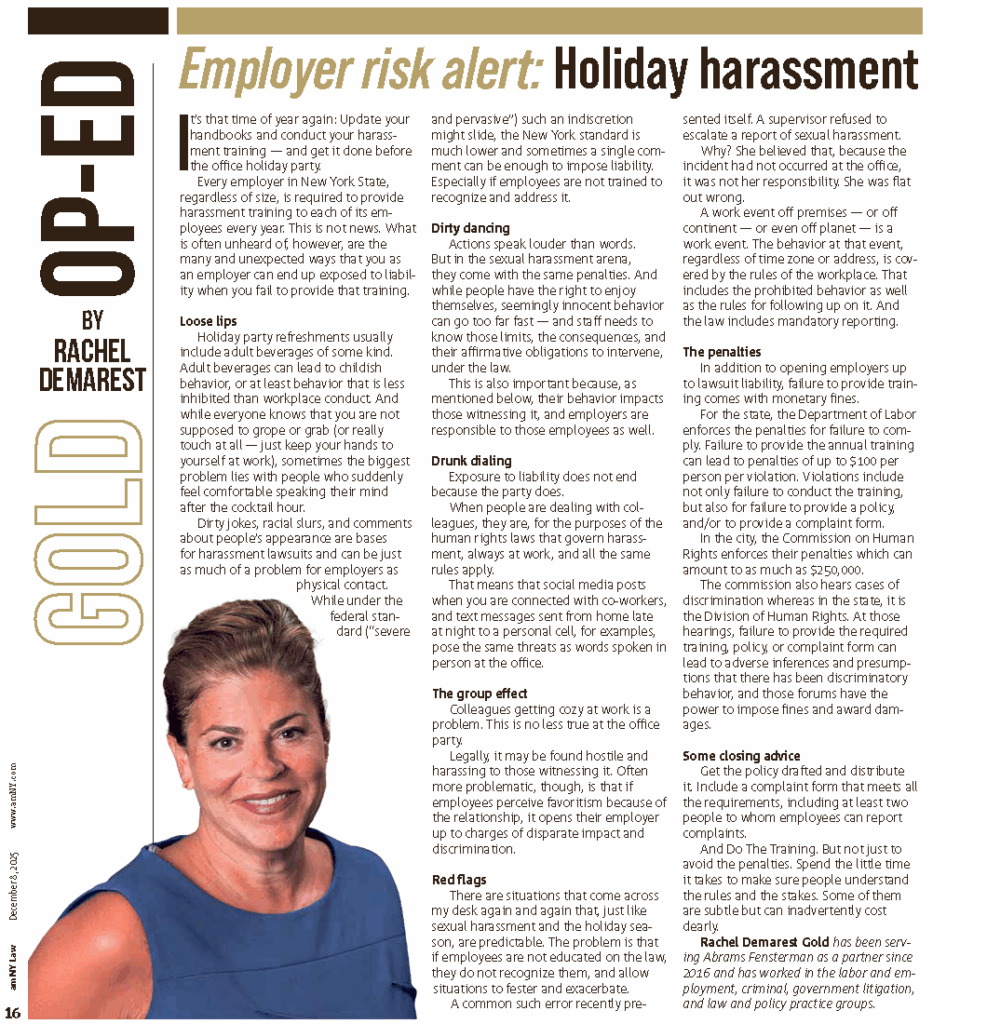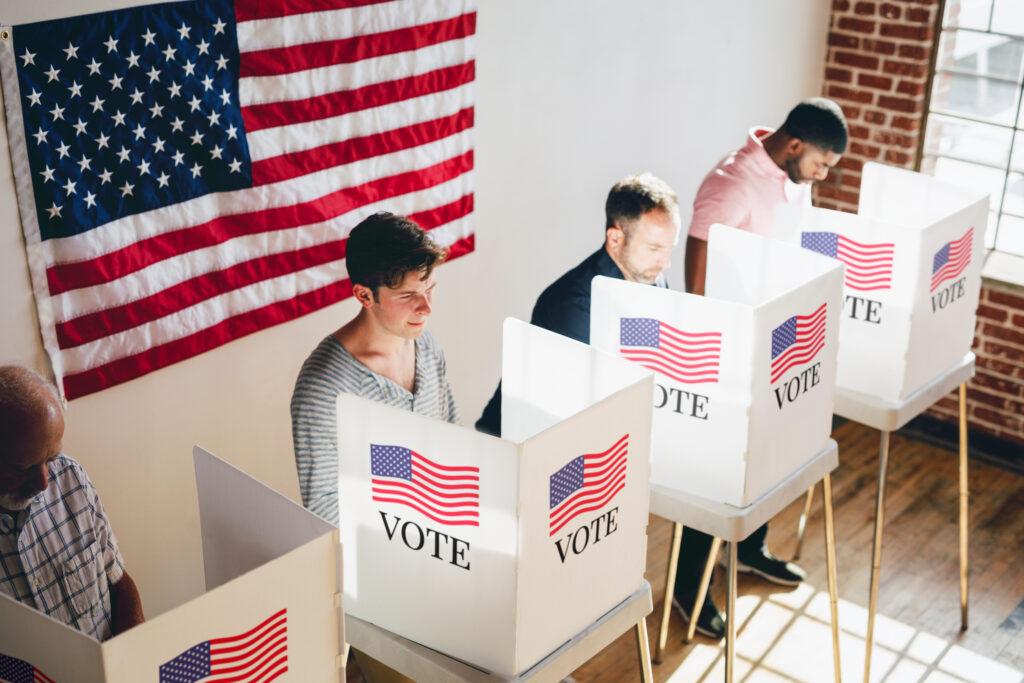
Following on the heels of the “me, too” movement, the New York State Legislature has enacted a series of laws directed at managing the issues and preventing against public funds being spent on sexual harassment judgments. There are obligations on both public and private employers. The effective dates of each provision are listed below. We will provide additional updates as each provision is phased in. In the meantime, we are available to assist with any business’ questions or implementation.
Public Employer obligations (this includes private companies doing business with the State):
- Public Bidding Affirmations: Every bid submitted to the State or any public department or agency under the competitive bidding laws will be required to contain the following statement affirmed under the penalties of perjury: “By submission of this bid, each bidder and each person signing on behalf of any bidder certifies, and in the case of a joint bid each party thereto certifies as to its own organization, under penalty of perjury, that the bidder has and has implemented a written policy addressing sexual harassment prevention in the workplace and provides annual sexual harassment prevention training to all of its employees.” This provision takes effect January 1, 2019.
- No Reimbursement for Judgments: Any employee subject to a final judgment of personal liability for intentional wrongdoing related to a claim of sexual harassment must reimburse any state agency or entity making a payment to the plaintiff for his or her proportional share of an adjudicated award on a claim of sexual harassment resulting in a judgment. The reimbursement has to be made within 90 days of the public entity’s payment of the award. This provision is already in effect as of the law’s passage on March 30, 2018.
Public and private employer obligations:
- Mandatory arbitration clauses prohibited: No employer covered by the NYS Human Rights Law may require a mandatory arbitration clause to resolve any allegation or claim of an unlawful discriminatory practice of sexual harassment. Unless inconsistent with federal law, mandatory arbitration clauses in those cases will be deemed null and void, but the rest of the agreement may be enforceable. This provision will take effect on June 28, 2018.
- Nondisclosure or confidentiality agreements prohibited: Unless the complainant prefers confidentiality, no employer, its officers or employees shall have the authority to agree to a term in any settlement based on sexual harassment, which would require confidentiality or nondisclosure. A plaintiff has 21 days to consider whether to include such a term, and 7 days to revoke an agreement containing such a term. This provision will take effect on June 28, 2018.
- Adopting the model or another policy: All employers covered by the Human Rights law are required to adopt a sexual harassment policy. Employers may rely on the model to be developed by the Division of Human Rights. The policy must: 1) prohibit sexual harassment consistent with guidelines and provide examples of unlawful sexual harassment; 2) include information on federal and state provisions concerning sexual harassment and remedies under federal, state and local law; 3) include a standard complaint form; 4) include a procedure for a timely and confidential investigation of the claim; 5) inform employees of rights to redress claims administratively or judicially; 6) identify sexual harassment as a form of employee misconduct subject to sanction and penalty; and clearly prohibit retaliation. This policy or a similar policy and procedure must be provided to all employees in writing. This provision takes effect September 26, 2018.
- Training programs: Employers must develop training programs that equals or exceeds minimum standards, which must be provided to all employees on an annual basis. This provision takes effect September 26, 2018.
- Expanding liability: The legislation also requires that the definition of discriminatory practice be expanded in the State Executive Law to cover non-employees in the workplace, including contractors, subcontractors, vendors, and consultants, when the employer or supervisors know or should have known of the harassment but fail to take immediate and appropriate corrective action. This provision of the law took effect immediately upon passage on March 30, 2018.
- Signaling how hot this topic is, as this ALERT went to press, the NYC Council also enacted similar measures, including training requirements for employers with 15 or more employees. We will bring you up to date on those requirements, too, and how they interact with the State requirements. It is not too early to start to prepare.
For questions or help with compliance and implementation, please contact:
Sharon P. Stiller
585.218.9999
[email protected]
Rachel Demarest Gold
718.215.5300
[email protected]





